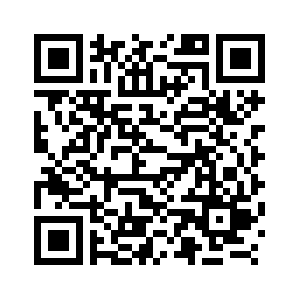Interview: Iran not to bow to West's "unlawful" demands, senior diplomat says
Source: Xinhua
Editor: huaxia
2025-09-04 14:50:00
TEHRAN, Sept. 4 (Xinhua) -- Iran will not bow to "unlawful" demands of the West, including certain European states, which are aimed at depriving the country of its "inalienable" nuclear rights, a senior diplomat has said.
"As long as we are a member of the Treaty on the Non-Proliferation of Nuclear Weapons (NPT), we should be able to enjoy our rights," said Iranian Foreign Ministry Spokesman Esmaeil Baghaei, in an exclusive interview with Xinhua, referring to the right of all NPT signatories to develop and use nuclear energy for peaceful purposes. "Iran is not going to bow to their unlawful demands."
He made the remarks after France, Britain and Germany, collectively known as the E3, announced on Aug. 28 that they had notified the UN Security Council (UNSC) of their decision to trigger the "snapback" mechanism, thus preparing the ground for the re-imposition of previously lifted UN sanctions on Iran.
The E3 have argued that their decision to trigger the mechanism was based on "clear factual evidence" of Iran's non-performance of its commitments under the 2015 nuclear deal, known as the Joint Comprehensive Plan of Action (JCPOA), including its rollback of monitoring measures by the International Atomic Energy Agency (IAEA).
The denied IAEA access came after Israel launched major airstrikes in June on Iran, with a focus on its nuclear sites, during which the United States bombed Iran's nuclear facilities under the supervision of the IAEA.
Iran and the E3 had held several rounds of talks since the 12-day conflict between Israel and Iran, which derailed indirect nuclear talks between Tehran and Washington starting in April. Yet the E3 required Iran to resume talks with the United States and grant access to IAEA inspectors in exchange for a delay of the snapback, which Tehran deemed as "full of unrealistic preconditions."
Baghaei argued that since the United States withdrew from the JCPOA in 2018 and reinstated sanctions, the E3 have not met their obligations and thus have no legal basis to trigger dispute mechanisms.
He said that the E3 are acting under U.S. instructions and that reintroducing sanctions violates the JCPOA and UNSC Resolution 2231.
"The way we see it is that the three European countries are simply acting upon instruction from the United States," he said.
Under the snapback mechanism, sanctions are re-imposed after 30 days unless blocked by a UNSC resolution, which requires nine votes and no veto from permanent members.
He said that Iran had started a diplomatic process with the United States on its nuclear program and the removal of U.S. sanctions, and was committed to it, and was acting in good faith when the U.S. main ally, Israel, attacked Iran.
The United States also joined Israel in attacking Iran's peaceful nuclear facilities, Baghaei said, accusing the Americans of betraying diplomacy by using "unlawful force" against Iran.
Iran signed the JCPOA with six major countries -- Britain, China, France, Germany, Russia, and the United States -- in July 2015, accepting restrictions on its nuclear program in return for sanctions relief.
Following the U.S. withdrawal from the deal and reinstatement of sanctions, Iran was prompted to scale back some of its nuclear commitments. Efforts to revive the nuclear deal have not achieved substantial progress. ■



